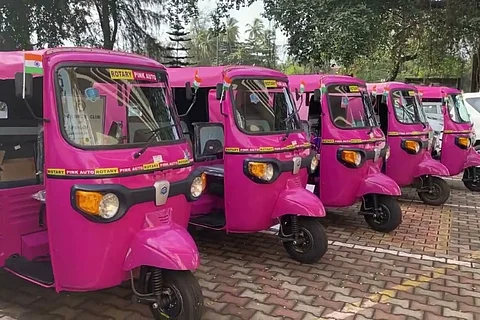
- HOMEGROWN WORLD
- #HGCREATORS
- #HGEXPLORE
- #HGVOICES
- #HGSHOP
- CAREERS
- ABOUT US
- CONTACT US

Vigilance is an unfortunate symptom of womanhood. I’m always astounded by the nonchalance with which men experience life, unbothered by how what they’re wearing, how late they’re out, or whether they’re alone or not may affect their safety. Most women have never felt the privilege of this feeling; we always have to be aware of our surroundings, so used to exercising caution that it has become like second nature to us.
This can make moving through the world difficult for women. From trains and buses to auto rickshaws and Ubers, we’ve all heard transportation horror stories, if not experienced them ourselves. Too often, the responsibility to prevent violence against women falls on victims rather than perpetrators. But we know that’s a load of bullshit. Questions like “What were you wearing?” and “Why were you out alone?” strip us of our autonomy. The only true way forward is systemic change. We need more accessible, safe transportation, and more importantly, we need to tear misogynistic social conditioning out by its roots.
The Government of Tamil Nadu is attempting to meet the first of these goals with the Pink Auto Scheme. On Women’s Day, the government’s Department of Social Welfare and Women Empowerment announced the launch of 100 bright pink auto rickshaws on Chennai’s roads, all operated by women drivers and catered towards women passengers. The rickshaws are also equipped with a direct line of access to the police and a GPS mapping system.
Other than offering passengers a safer rider experience, the Pink Auto Scheme opens up new employment opportunities for women. Too often women are subjugated to working in the domestic sphere because of the misconception that we aren’t capable of more. The Pink Auto Scheme gives women the option to safely pursue a new line of work at a subsidized cost.
Tamil Nadu is not the first state to see pink autos. The Ranchi government first launched the Pink Auto Scheme in 2013, in the aftermath of the 2012 Delhi Gang Rape. The pink autos were unfortunately unsuccessful in Ranchi, as drivers struggled to find woman passengers and were therefore limited in their profit-making opportunities. However, the initiative has since been launched with much greater success in Odisha, Surat, and Gurgaon. In Maharashtra, the government hopes to have a whopping 10,000 pink e-rickshaws hit the streets in an ambitious attempt to offer women a sustainable livelihood.
Pink Rickshaws, as cute as they may look, are not the solution to our problem. But the Pink Auto Scheme is a noble attempt at improving women’s circumstances, a good first step towards a public sphere that is more accepting of women. Next, we can only hope to see the government take further accountability for the systemic oppression Indian women face. An equal, safe India is entirely possible, our leaders just need to put in the work to get us there.
